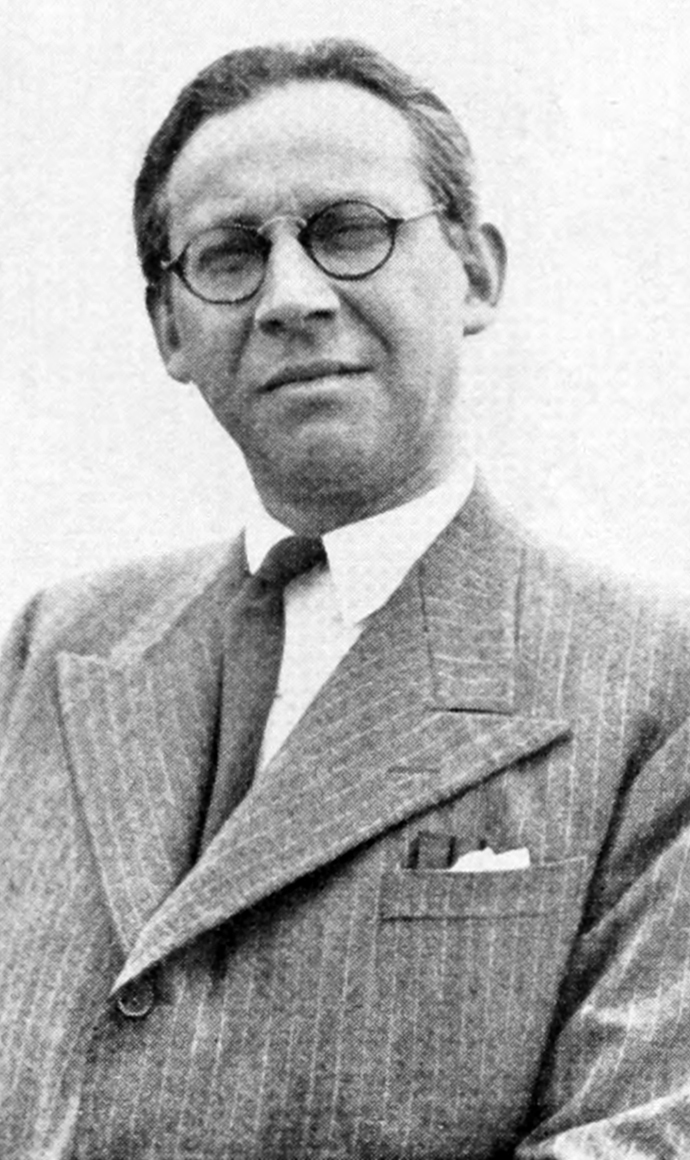
Alexander Korda
Sir Alexander Korda (/ˈkɔːrdə/; born Sándor László Kellner; Hungarian: Korda Sándor; 16 September 1893 – 23 January 1956)[1][2] was a Hungarian–born British film director, producer, and screenwriter, who founded his own film production studios and film distribution company.[3]
The native form of this personal name is Korda Sándor. This article uses Western name order when mentioning individuals.
Alexander Korda
16 September 1893
23 January 1956 (aged 62)
- Film director
- producer
- screenwriter
1914–1955
1
Zoltan Korda (brother)
Vincent Korda (brother)
Michael Korda (nephew)
Chris Korda (great-niece)
Born in Hungary, where he began his career, he worked briefly in the Austrian and German film industries during the era of silent films, before being based in Hollywood from 1926 to 1930 for the first of his two brief periods there (the other was during World War II). The change led to a divorce from his first wife, the Hungarian film actress María Corda, who was unable to make the transition from silent films to "talkies" because of her Hungarian accent.
From 1930, Korda was active in the British film industry, and soon became one of its leading figures. He was the founder of London Films and, post-war, the owner of British Lion Films, a film distribution company. Korda produced many outstanding classics of the British film industry, including The Private Life of Henry VIII, Rembrandt, Things To Come, The Thief of Baghdad and The Third Man. In 1942, Korda became the first filmmaker to receive a knighthood.[4]
Personal background[edit]
Korda was born Sándor László Kellner into a Jewish family in Pusztatúrpásztó, Austria-Hungary.[5] His parents were Henrik Kellner and Ernesztina Weisz.[6][7][8] He had two younger brothers, Zoltan and Vincent, who also had careers in the film industry, often working with Alexander.
Early career in European silent film[edit]
Films in Hungary[edit]
After the death of his father, Korda began writing film reviews to support his family. He also changed the family name, deriving the new name Korda from the Latin phrase "sursum corda" ("lift up your hearts").[9]
Having been excused from military service in the Austro-Hungarian Army in the First World War, because he was short-sighted, Korda became an important figure in the Hungarian film industry, initially through his magazines Pesti Mozi, Mozihét and Világ. This led to invitations to write screenplays. His first script was for Watchhouse in the Carpathians (1914), which he also helped to direct.[10] He also made a film with Gyula Zilahy, The Duped Journalist (1914), and directed Tutyu and Totyo (1915), The Officer's Swordknot (1915) and Lyon Lea (1915).[11]
In 1916, Korda established his own production company, Corvin Film. Its first film was White Nights (1916), which was a big success. Korda went on to build Corvin into one of the largest film companies in Hungary with such productions as The Grandmother (1916), Tales of the Typewriter (1916), The Man with Two Hearts (1916), The One Million Pound Note (1916), Cyclamen (1916), Struggling Hearts (1916), The Laughing Saskia (1916), Miska the Magnate (1916), St. Peter's Umbrella (1917), The Stork Caliph (1917) (from the novel by Mihály Babits), and Magic (1917). Korda later regarded Harrison and Barrison (1917) as his best film. He also made Faun (1918), Man of Gold (1918), and Mary Ann (1918).
Under the shortlived Hungarian Soviet Republic Korda made Ave Caesar! (1919), White Rose (1919), Yamata (1919) and Neither at Home or Abroad (1919). His final Hungarian film was Number 111 (1919).
In October 1919 Korda was arrested during the White Terror that followed the overthrow of the Communist government, but was soon released. He then left Hungary for Austria. He never returned to his country of birth.[12]
Sojourn in Hollywood[edit]
The outbreak of the Second World War in Europe meant that The Thief of Bagdad had to be completed in Hollywood, where Korda was based again for a few years. While he was in the United States he produced and directed That Hamilton Woman (UK title: Lady Hamilton) (1941) with Laurence Olivier and Vivien Leigh, and produced Lydia (1941) with Oberon. He also supervised Jungle Book (1942), a live-action version of Kipling's stories, directed by Zoltán Korda. He also had minor involvement in To Be or Not to Be (1942).
Legacy[edit]
Michael Korda, son of Vincent and thus nephew of Alexander, wrote a roman à clef about Merle Oberon, published after her death.[36] It was entitled Queenie. He also wrote a memoir, Charmed Lives (1979), about his father, his two uncles and the rest of their large extended family.
The Alexander Korda Award for "Outstanding British Film of the Year" is given by the British Academy of Film and Television Arts.
Korda announced a number of projects which were never made, including: